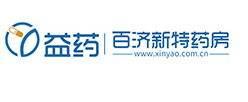您現在的位置: 百濟新特藥房網首頁 >> 腫瘤科 >> 新藥動態
世界上首個治療Castleman病的新藥Actemra®于日本
- 來源: http://www.chugai-pharm.co.jp 作者:百濟動態 瀏覽: 發布時間:2005/12/12 11:44:00
(6月13日)東京Chugai藥業公司宣布其用于治療Castleman病的人源化IL-6受體單克隆抗體Tocilizumab(基因重組)注射劑(商品名為:靜脈注射劑ACTEMRA?200),該名簡稱ACTEMRA?,正式投入生產。
據日本媒體4月14日消息,中外制藥13日稱,厚生勞動省已批準其生產首種國產化的抗體藥物人源化IL-6受體單克隆抗體(Tocilizumab)——用于治療罕見病Castleman’s disease。
據悉,Castleman為淋巴增殖性疾病,盡管致病因尚未明了,但可能與IL-6的過剩分泌相關。Tocilizumab具有抑制IL-6與其受體結合的作用,可用于無法手術的患者人群。
詳情請查看原文:
''''Actemra?'''' - World''''s First Drug for Castleman''''s Disease - Launched in Japan
Category: Public Health News
Article Date: 13 Jun 2005
Tokyo - Chugai Pharmaceutical Co., Ltd [Head Office: Chuo-ku, Tokyo; President Osamu Nagayama (hereinafter, Chugai)] announced that the humanized anti-human IL-6 (interleukin-6) receptor monoclonal antibody, tocilizumab (genetical recombination) injection - trade name: ACTEMRA? 200 for Intravenous Infusion (hereinafter, ACTEMRA?) - for the treatment of Castleman''''s disease*1, was launched today.
ACTEMRA? is a humanized monoclonal antibody co-developed by Osaka University and Chugai utilizing genetic recombinant technology. In order to meet the medical needs such as the development of new therapies targeting more specific disease process, Chugai completed the clinical development in a short period after receiving the orphan drug designation for Castlemen''''s Disease in December 2000. The NDA for Castleman''''s disease was filed in April 2003 and was approved on April 11, 2005 as the first monoclonal antibody drug manufactured in Japan. The price was listed on the National Health Insurance reimbursement price list on June 3, 2005.
The price was set at 59,879 yen per vial.
ACTEMRA? is the world''''s first drug approved for Castleman''''s disease. Chugai estimates that approximately 1,500 patients are diagnosed as Castleman''''s disease in Japan. It is further estimated that among these patients, over 100 patients who cannot be treated by surgery and show resistance to traditional therapies are subject to ACTEMARA treatment. Castleman''''s disease was first reported by Dr. Benjamin Castleman (MD) in 1956 and is a very rare lymphoproliferative disease characterized by symptoms such as systemic lymphadenopathy, fever, general fatigue, weight loss, anemia, splenomegaly, hepatomegaly, and various abnormal laboratory test values. Conditions such as amyloidosis, hemolytic anemia, or interstitial pneumonia have been reported as complications of the disease. The pathology and symptoms of Castleman''''s disease result from the excessive production of IL-6. ACTEMRA? has been proved through clinical trial to improve the symptoms and abnormal laboratory test values by suppressing the biological activity of IL-6.
Thirty five patients with Castleman''''s disease received 8 mg/kg of ACTEMRA? eight times in total with two-week intervals in the Phase II study, which resulted in significant improvements in inflammation markers (increased C reactive protein, increased fibrinogen, increased erythrocyte sedimentation rate), general malaise, anemia, and hypoalbuminemia. In the subsequent long-term extension study (treatment period: maximum 1,568 days, average 1,191 days) the therapeutic effect such as improvement of the inflammation markers was maintained with good tolerability.
The major adverse events were nasopharyngitis (88.6%); skin rash (48.6%); abdominal pain (31.4%); itching (28.6%); and neutropenia (25.7%)。 As the condition for approval*2 all patients treated with ACTEMRA? will be required to be monitored for efficacy and safety.
Chugai wishes that the introduction of this drug brings increased benefits to patients who are refractory to conventional therapies such as corticosteroids.
Reference
Generic name: Tocilizumab (Genetical Recombination)
Trade name: ACTEMRA? 200 for Intravenous Infusion
*1Indications: Improvement of various symptoms (e.g. general malaise) and laboratory findings (e.g. increased C-reactive protein,fibrinogen, and erythrocyte sedimentation rate,decreased haemoglobin and albumin) associated with Castleman''''s disease. However, treatment with ACTEMRA? should be limited to patients for whom lymph node resection is not indicated.
Dosage and Administration:
The recommended dose of tocilizumab (genetical recombination) is 8 mg/kg as a single intravenous drip infusion administered at 2-week intervals. The dosing interval may be shortened to 1 week as minimum depending on the patient''''s condition.
*2Condition for approval:
During the reexamination period, all patients treated with ACTEMRA? should be registered as subjects, and investigations about efficacy and safety including change of lymph node swelling and effect on progression of complications should be conducted. At the same time, information about efficacy and safety of long term treatment with ACTEMRA? should be collected.
Date of listing in the NHI reimbursement price: June 3, 2005
Date of initial marketing in Japan: June 13, 2005
Expiration date: 2 years
NHI price: ACTEMRA? 200 for Intravenous Infusion: 59,879 yen per vial
TAG:Actemra® ACTEMRA® Castleman病 Tocilizumab
相關藥品








